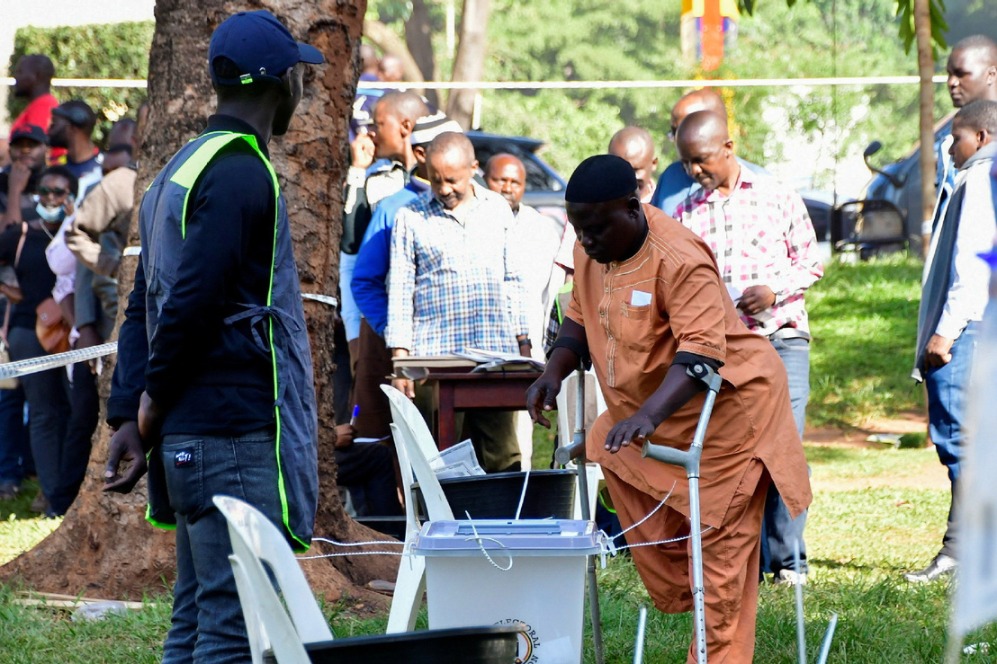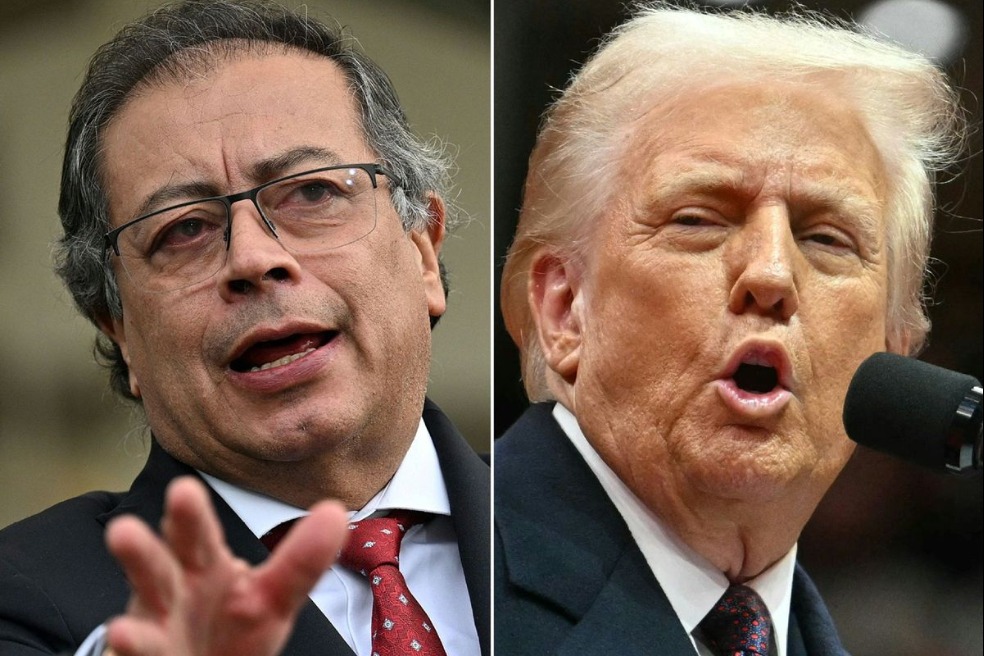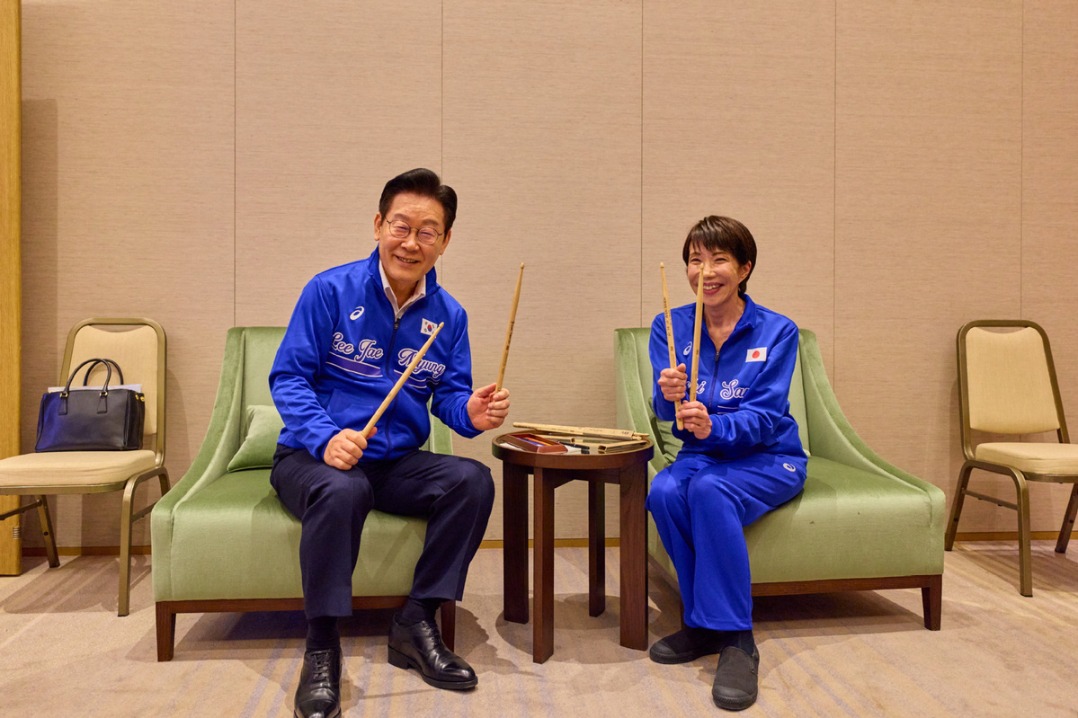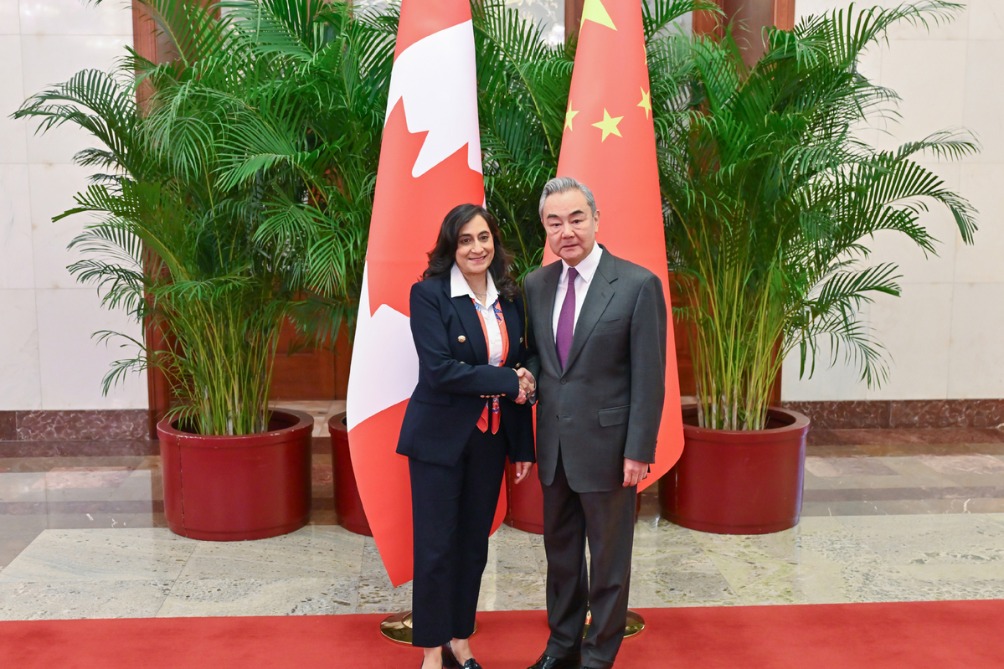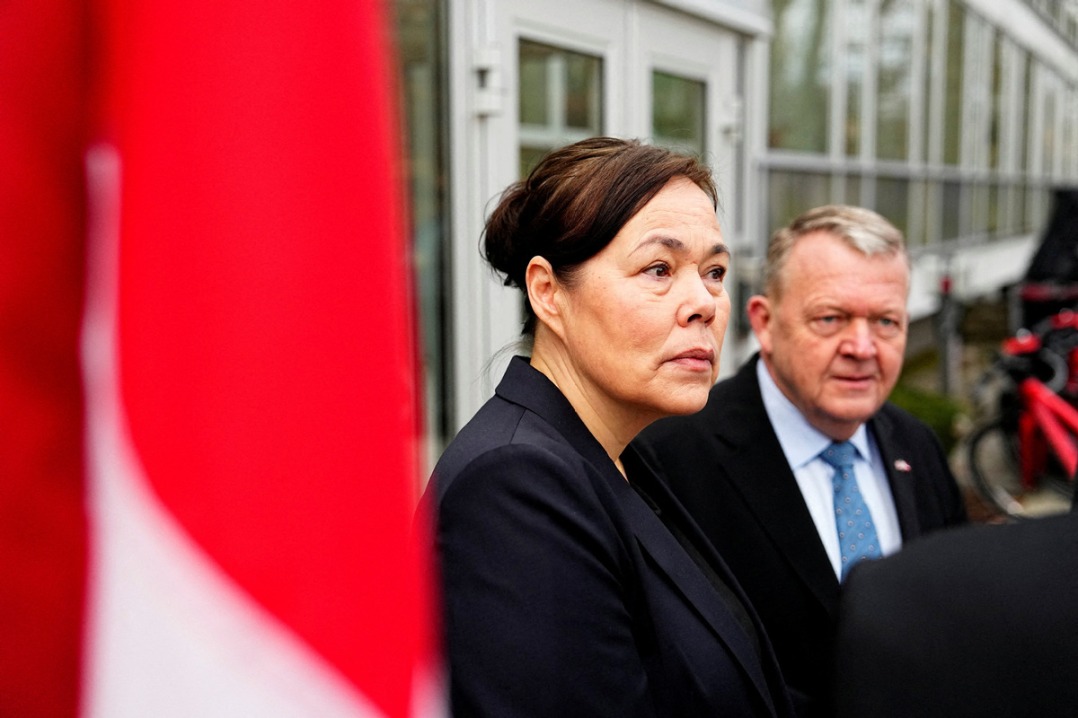Crisis seen softening hearts on refugees


Sympathy for Ukrainians may change attitudes to others in need, UN official says
WARSAW/MOSCOW-An outpouring of public support across Europe for the millions of people who have fled the conflict in Ukraine may point to a shift in attitudes toward refugees, a UN official said as Kyiv received a morale-boosting visit from British Prime Minister Boris Johnson.
Gillian Triggs, the assistant high commissioner for protection at the United Nations' refugee agency, spoke of the wellspring of sympathy for Ukrainians leading to a potential softening in attitudes toward refugees more broadly.
"We are very encouraged," Triggs said in a Reuters Newsmaker interview published on Friday, as fighting intensified in Ukraine's eastern Donbas region.
More than 6.5 million people have left since Russia's "special military operation" started nearly four months ago, many finding accommodation in private homes or hotels, as well as in government-sponsored housing.
A survey by the pollster Ipsos also showed on Friday that the world has become more compassionate toward refugees, a finding it said suggested the conflict in Ukraine had increased public openness to refugees.
About 78 percent of people in 28 countries believe those escaping conflict or persecution should be able to take refuge in another country, up from 70 percent in a 2021 survey.
Also, fewer people believe borders should be entirely closed to refugees, with 36 percent agreeing in Friday's poll, against 50 percent a year earlier.
Triggs said some level of fatigue may be setting in and cautioned governments to prepare to rehouse Ukrainians once private accommodation dries up.
Mounting pressure
Migration has been one of the most divisive policy issues in Europe for years, as the bloc faced mounting pressure from people fleeing conflict and poverty in the Middle East and Africa. And sympathy has been in short supply for migrants from these regions.
On Saturday, with a blessing for Ukraine's ambitions to join the European Union and a pledge of unwavering support from Britain, the country vowed to prevail against Moscow as it battled Russian forces.
EU countries are expected at a summit this week to grant Ukraine EU candidate status following a recommendation from the bloc's executive on Friday, putting Kyiv on course to realize an aspiration, even if membership could be years away.
On Johnson's visit to the Ukrainian capital, he offered President Volodymyr Zelensky a ramped-up military training program to help in the country's fight against Russian forces.
Johnson followed up the visit on Friday with an article in a British newspaper in which he said Ukraine's foreign backers should hold their nerve to ensure it has "the strategic endurance to survive and eventually prevail".
"Time is now the vital factor," Johnson wrote in a 1,000-word article for The Sunday Times.
Johnson's surprise visit came a day after European leaders from France, Germany, Italy and Romania were in Kyiv to back the country's EU aspirations.
On Saturday, Zelensky said he had visited soldiers on the southern front line in the Mykolaiv region.
In other developments on the battlefield, two top commanders of fighters who defended the Azovstal steel plant in Ukraine's southeastern port of Mariupol have been transferred to Russia for investigation, Russia's state news agency TASS reported.
In the economic sphere, Russian President Vladimir Putin explained Moscow's stance and policy on hotspot political and economic issues during the 25th St Petersburg International Economic Forum on Friday.
At the plenary session of the forum, Putin recalled that the surge in commodity and raw material prices occurred long before the Russian special military operation in Ukraine, underlining that the current situation has nothing to do with Russia but was caused by "many years of irresponsible macroeconomic policies" of the Group of Seven nations.
Regarding the future of the Russian economy, Putin said his country will never follow the path of self-isolation and economic independence.
AGENCIES - XINHUA
















